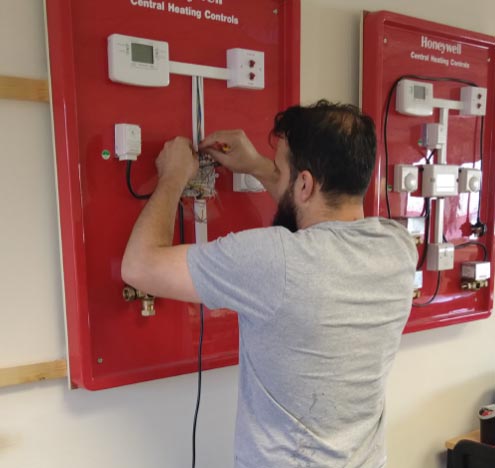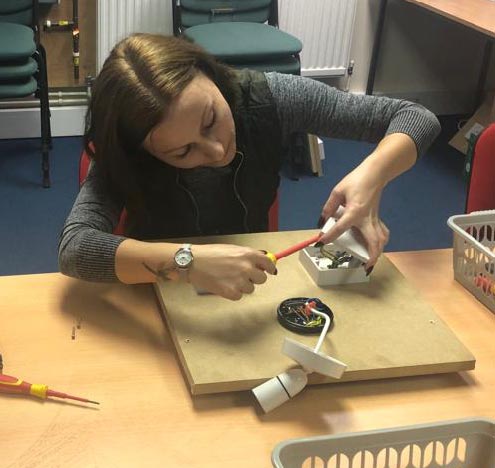In January 2019 the Ministry of Housing, Communities and Local Government (MHCLG) issued their response, (see extracts below) to a consultation paper/questionnaire which resulted in the statement that “Regulations requiring landlords to have electrical installations in privately rented homes checked every five years will be introduced as soon as parliamentary time allows”.
It is the latter part of the statement that has caused the delay as Heather Wheeler who was driving the change has now moved on and is no longer in the MHCLG, thanks to Brexit changes. However, the “How to Let” guidance document issued by the government gives hope as they mention in page 6 that the recommended checks to be performed every five years will soon become law. Couple this with the threat of prosecution or civil fines of up to £30,000 then it looks like the future of periodic inspection and testing and the requirement to issue an Electrical Installation condition report (EICR) in rented dwellings is promising.
In summary, we are advising all out clients that though this is not a legal requirement yet, steps are underway to make it so and therefore it is a good idea to start preparing now. What better way than to undertake the City and Guilds 2391 Inspection and Testing course now!
Below is an extract from the Government Paper but it is recommended that our clients read the full document:
Government response…
Introduction
The private rented sector is an important part of our housing market. It is the second largest tenure in England, has almost doubled in size over the last decade, and now houses 4.7 million households (20% of all households).
A consultation exercise on electrical safety in the private rented sector was held between 17 February and 16 April 2018 inviting views and comments on the recommendations of the Electrical Safety Standards Working Group. The working group had recommended introducing five yearly mandatory electrical installation checks for private rented property and that other safety measures be encouraged as good practice and set out in guidance. It also made recommendations about the introduction of a new competent person scheme and how the new regulations should be implemented.
Following the working group and this consultation, the Government announced on 19 July that regulations would be introduced requiring private sector landlords to undertake five yearly safety checks of electrical installations in their properties.
The Government is committed to tenant safety and believes that the safety of tenants is of paramount importance. The Government notes the strong support for these recommendations and announced on 19 July that we would be making five yearly electrical installation checks mandatory. We intend to introduce the legislative requirements as soon as Parliamentary time allows ensuring industry is given at least 6 months to become familiar with the new duty before it comes into force.
A transitional period will also apply in the first two years, where the new duty will only apply to all new private tenancies in year 1 and then extended to all existing private tenancies in year 2. Properties with an existing electrical installation condition report (EICR) will not be required to replace it for 5 years from its date. For new and fully rewired properties, an Electrical Installation Certificate can be presented in place of an EICR provided that the date of next inspection indicated on the certificate has not elapsed.
Ministers are very clear that the safety of tenants is of paramount importance. In addition, the conclusions of the Independent Review of Building Regulations and Fire Safety by Dame Judith Hackitt noted the importance of ensuring a coherent and comprehensive approach to competence with robust systems of accreditation and enforcement to ensure adequate accountability. Whilst we agree, therefore, with the views of consultees and consider the introduction of a mandatory competent person scheme for the inspection of electrical installations in the privately rented housing to be overly bureaucratic and expensive, we accept the views of the working group that landlords will need a system of ensuring that those carrying out electrical inspections have the required skills.
We will, therefore, produce new guidance for landlords that demonstrates which qualifications provide that level of competence. Landlords should have regard to that guidance in determining who is competent to carry out an electrical safety inspection. This approach will provide clear accountability at each stage of the process, of what is required and whose responsibility it is – without excessive cost and time burdens to the industry.
Next Steps
Regulations requiring landlords to have electrical installations in privately rented homes checked every five years will be introduced as soon as parliamentary time allows. They will include a requirement on landlords to ensure that they must also have regard to new guidance in determining who is competent to carry out an electrical safety inspection. The regulations will be subject to the affirmative procedure and will need to be debated and approved in both Houses of Parliament before they can be brought into force.
We intend to introduce the new requirements on a phased basis starting with new tenancies.



